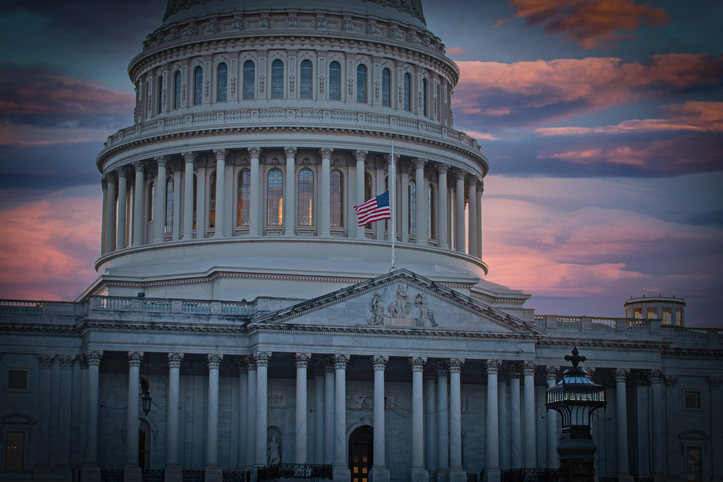A Brief History Of Affirmative Action In America
Source: Douglas Rissing / Getty
Affirmative action is one of the most controversial civil rights initiatives in American history but its importance to Black Americans and their fight for the pursuit of equity and inclusivity in the U.S. is immeasurable.
MORE: The Critical Race Theory Explainer Every White Person Should Read
Affirmative action, which was creative in the mid-20th century, is a term that refers to policy aimed at increasing workplace and educational diversity for people who have been underrepresented in various areas of our society.
It was created to reverse historical trends of discrimination against individuals with certain identities, mainly Black people who have suffered decades of discrimination, oppression, and racism at the hands of their white counterparts.
A highly disputed question that arises from affirmative action is, should people be judged by their race when being hired by a company or admitted into a school? The easy answer is no, but there is nothing easy about race relations in America and affirmative action isn’t as simple as a yes or a no.
In this article, we will dive into the history of affirmative action, how it works, why it’s so controversial, and what could happen if/when it goes away.
According to the NYT, affirmative action came to be in 1935 through the Wagner Act gave workers the right to form and join unions, but John F. Kennedy was the first president to link the term specifically with a policy meant to advance racial equality.
In 1961, Kennedy issued an Executive Order which included a provision that government contractors “take affirmative action to ensure that applicants are employed, and employees are treated during employment, without regard to their race, creed, color, or national origin. In 1965, President Lyndon B. Johnson issued another Executive Order prohibiting employment discrimination based on race, color, religion, and national origin by those organizations receiving federal contracts and subcontracts. In 1967, Johnson amended the order to include sex on the list of attributes.
Many who opposed Johnson’s new push for equal rights called affirmative action a quote system, claiming it meant the hiring of fewer qualified candidates, who were most likely white.
In the 1978 University of California v. Bakke case, the Supreme Court ruled that a university’s use of racial “quotas” in its admissions process was unconstitutional, but the school had the right to use race in admissions in order to create a diverse student body.
The medical school reserved 16 out of 100 seats in its entering class for minorities, including “Blacks,” “Chicanos,” “Asians,” and “American Indians, but that was deemed unconstitutional. Ultimately, schools were allowed to use race, as long as it was one of many factors taken into account when admitting students.
Since the Bakke Supreme Court case, affirmative action when it comes to college admissions has pretty much stayed the course. But that hasn’t stopped conservative activist Edward Blum and his mission to kill affirmative action altogether.
Blum has two lawsuits, that are being decided by the supreme court which could end affirmative action as we know it. According to Time, both ask the Supreme Court to strike down Harvard’s and UNC’s policies and preclude any consideration of race in admissions going forward. Although both schools use what is called a Holistic approach to admissions where many factors are taken into account when deciding if a student should be admitted into the schools, the Supreme Court now leans more conservative, which is seen as an opportunity for those who want to do away with affirmative action.
Asian Americans have also joined in the fight against affirmative action. In the Harvard case, some Asian Americans have claimed that affirmative action discriminates against Asians who are generally overrepresented on college campuses. Ironically, Asians were intricate in the creation and implantation of English as a second language in American schools, which is an affirmative action initiative.
Now through the latest round the lawsuits, Asians could be the catalyst to the end of affirmative action as we know it.
According to PEW, while most Asian American adults (58 percent) do not believe colleges should consider race or ethnicity as a factor in admissions decisions, the share who oppose this was decidedly lower than American adults overall (73 percent).
If affirmative action does go away, hopefully, colleges can still use a holistic approach to admissions. We can all agree that diversity is a good thing and without affirmative action, what’s to stop these universities from going back to looking all-white?
SEE ALSO:
The post A Brief History Of Affirmative Action In America appeared first on NewsOne.

